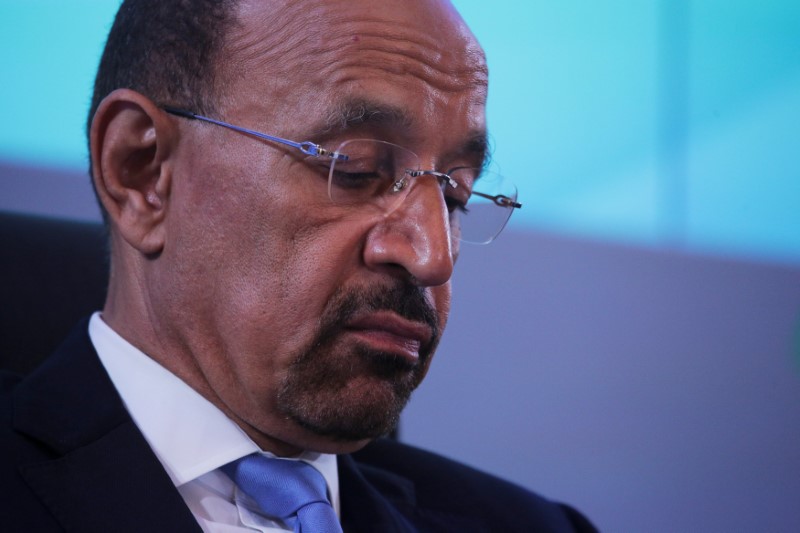By Katya Golubkova, Vladimir Soldatkin and Rania El Gamal
ST PETERSBURG, Russia (Reuters) - OPEC moved on Monday to cap Nigerian oil output and called on several members to boost compliance with production cuts to help clear excessive global stocks and support flagging prices.
OPEC has agreed with several non-OPEC producers led by Russia to cut oil output by a combined 1.8 million barrels per day (bpd) from January 2017 until the end of March 2018.
OPEC states Libya and Nigeria were exempted from the limits to help their oil industries recover from years of unrest.
The deal to curb output propelled crude prices above $58 a barrel in January but they have since slipped back to a $45 to $50 range as the effort to drain global inventories has taken longer than expected.
Rising output from U.S. shale producers has offset the impact of the output curbs, as has climbing production from Libya and Nigeria.
A ministerial committee of OPEC and non-OPEC states that monitors the global oil pact said it had agreed Nigeria would join the deal by capping or even cutting its output from 1.8 million bpd, once it stabilizes at that level from 1.7 million bpd recently.
The monitoring committee, known as JMMC and which met in the Russian city of St Petersburg, did not give the timeframe for when this would happen, saying it would track Nigerian production patterns in the next weeks.
The committee did not back capping Libyan output as it said its production was unlikely to exceed 1 million bpd in the near future compared to its capacity of 1.4 million-1.6 million bpd before unrest erupted in 2011 and plunged the nation into chaos.
Brent oil prices rose about 1 percent at about $48.50, helped by news of a cap on Nigeria and by comments from Saudi Energy Minister Khalid al-Falih that the kingdom's exports would fall to 6.6 million bpd in August as demand at home was rising, effectively representing a cut of 1 million bpd year-on-year.
He said global stocks had fallen by 90 million barrels, but were still about 250 million barrels above the five-year average for industrialized nations, which is the level OPEC and non-OPEC states are targeting with their output curbs.
BEARISH SENTIMENT
Russia and Saudi Arabia face mounting pressure to prop up oil prices. Russia, which is heavily reliant on oil revenues, holds a presidential election next year. Saudi Arabia needs higher prices to balance its budget and support next year's planned listing of state oil firm Saudi Aramco.
"We must acknowledge that the market has turned bearish with several key factors driving these sentiments," Falih told the meeting of the monitoring committee.
Falih said weaker compliance with cuts by some OPEC states and a rise in OPEC exports had led to a softer crude price.
Saudi Arabia and Kuwait have cut more than they pledged but others, such as the United Arab Emirates and Iraq, have shown relatively weak adherence to the limits.
"Some countries continue to lag which is a concern we must address head on," Falih said. "Exports have now become the key matrix to financial markets and we need to find a way to reconcile credible exports data with production data."
Falih said the committee spoke to those who were lagging, without naming them, and said they pledged to boost compliance.
The Saudi minister said global oil demand was expected to grow by about 1.4 million to 1.6 million bpd next year, similar to 2017 and so should more than offset rising U.S. output.
JMMC's chair Kuwait said OPEC could call an extraordinary meeting to include Nigeria and could extend existing production curbs beyond March 2018 if markets failed to rebalance.
Alongside Saudi Arabia and Kuwait, the committee includes Russia, Venezuela, Algeria and Oman.
